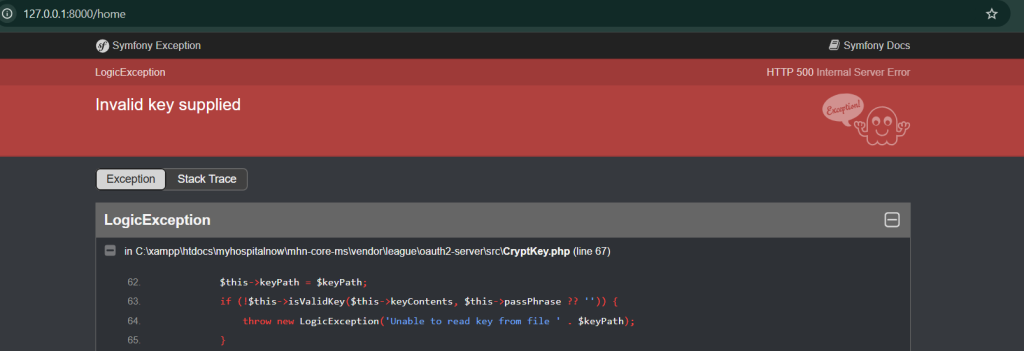
while trying to log in to your Laravel application, don’t worry. This issue is commonly related to misconfigured or missing keys for Laravel Passport’s OAuth2 authentication system. In this blog, we’ll walk through the error, its causes, and step-by-step solutions.
Understanding the Error
This error occurs when the league/oauth2-server package, used by Laravel Passport for managing OAuth2 authentication, is unable to locate or use the encryption keys required for secure token generation and verification. The error typically points to a problem with the CryptKey class, which is responsible for handling these keys.
Common Causes
- Missing Key Files: The private and public keys are not generated.
- Incorrect Key File Paths: The application’s configuration doesn’t point to the correct location of the keys.
- Invalid Key Format: The key files are corrupted or improperly formatted.
- Insufficient Permissions: The application does not have read access to the key files.
Quick Solution
To resolve the error, follow these steps:
Step 1: Generate New Passport Keys
Run the following Artisan command to regenerate the keys:
php artisan passport:keysThis will create two new files, oauth-private.key and oauth-public.key, in the storage directory. These keys are essential for the OAuth2 server to function properly.
Step 2: Clear Configuration Cache
After generating the keys, clear and rebuild the application configuration cache to ensure the changes take effect:
php artisan config:clear
php artisan cache:clear
php artisan config:cache